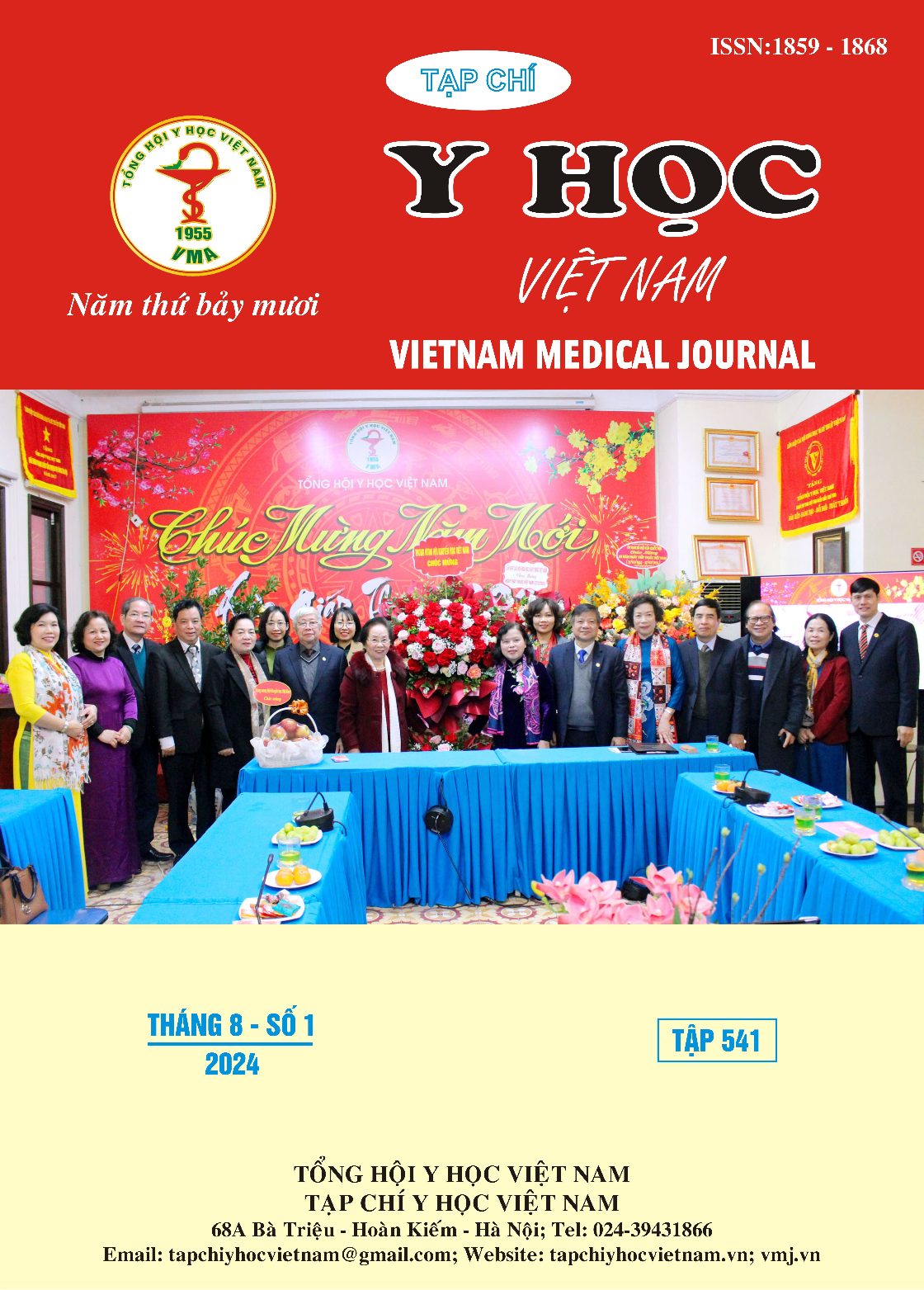CURRENT SITUATION OF USING PAPER RECORDS AND BARRIERS TO IMPLEMENTING ELECTRONIC HEALTH RECORDS IN MEDICAL EXAMINATION AND TREATMENT MANAGEMENT AT CAN THO GENERAL HOSPITAL IN 2023
Main Article Content
Abstract
Background: Medical records are an essential tool in the care and treatment of patients. Transitioning to electronic medical records (EMRs) is becoming a mandatory task for all healthcare facilities. To effectively implement EMR applications tailored to the specific unit, hospitals need to have precise scientific justifications. The issue is the current usage status of paper medical records in healthcare providers and the attitudes of healthcare staff towards the transition to EMRs to determine the needs and plan interventions. Objectives: Description of the current status of medical record management, challenges, and related factors when implementing EMRs at Can Tho General Hospital from March 2023 to September 2023. Methods: A descriptive cross-sectional study was conducted on 250 medical staff who are directly managing and using medical records in medical examination and treatment at Can Tho General Hospital. We collected data on demography, the disadvantages of using traditional medical records in hospital management, and other related factors. Results: A majority of medical staff thought that the paper records required time-consuming reviewing medical records, with 69.2%. The biggest challenge in the medical examination and treatment process identified by healthcare staff is that patients have to go through numerous forms when admitted to the hospital (67.6%). From the hospital's perspective, a major difficulty in implementing innovations in healthcare management is the lack of financial resources (71.2%). Finally, this study has revealed the relation between the level of support for EMRs and education level (p < 0.05). Conclusions: Traditional medical records have many disadvantages that are difficult to handle because they exist in many related studies. We suggested that the hospital should apply EMRs to improve the quality of medical examination and treatment at the hospital. From a management perspective, when implementing the transition to EMRs, it is necessary to budget and seek appropriate funding for implementation, and when providing training and guidance, special attention should be paid to healthcare staff with educational levels below university.
Article Details
Keywords
electronic medical records, quality management, hospital management
References
2. Nguyễn Văn Thu, Chu Huyền Xiêm, Tạ Văn Trầm. Thực trạng ghi chép hồ sơ bệnh án nội trú tại Trung tâm y tế huyện Càng Long, tỉnh Trà Vinh năm 2019. Tạp chí Y học Việt Nam. 2019;483(1):96-100.
3. Janssen A, Donnelly C, Elder E, Pathmanathan N, Shaw T. Electronic medical record implementation in tertiary care: factors influencing adoption of an electronic medical record in a cancer centre. BMC Health Services Research. 2021;21(1):23. doi:10.1186/s12913-020-06015-6
4. Nguyễn Hồng Trường. Thực trạng và hiệu quả ứng dụng bệnh án điện tử trong quản lý khám chữa bệnh tại Bệnh viện đa khoa thành phố Vinh. Luận văn Tiến sĩ y học, Đại học Y Dược Thái Bình. 2023:1-183.
5. Abiy R, Gashu K, Asemaw T, et al. A Comparison of Electronic Medical Record Data to Paper Records in Antiretroviral Therapy Clinic in Ethiopia: What is affecting the Quality of the Data? Online Journal of Public Health Informatics. 2018;10(2). doi:10.5210/ojphi.v10i2.8309
6. Nguyễn HT, Vũ PT, Nguyễn XB. Thực trạng sử dụng hồ sơ bệnh án trong quản lý khám chữa bệnh tại Bệnh viện đa khoa thành phố Vinh năm 2019. VMJ. 2022;519(1). doi:10.51298/ vmj.v519i1.3514
7. Almulhem JA. Medical students’ experience with accessing medical records in Saudi Arabia: a descriptive study. BMC Med Educ. 2021;21:272. doi:10.1186/s12909-021-02715-7
8. Nguyễn Thị Thùy Anh, Lê Thị Hồng Nhung, Phạm Thị Phương Anh. Đánh giá thực trạng và các yếu tố liên quan đến chất lượng ghi chép hồ sơ bệnh án của điều dưỡng. Tạp chí Y học Thành phố Hồ Chí Minh. 2018;Phụ bản tập 22(1):363-371.


